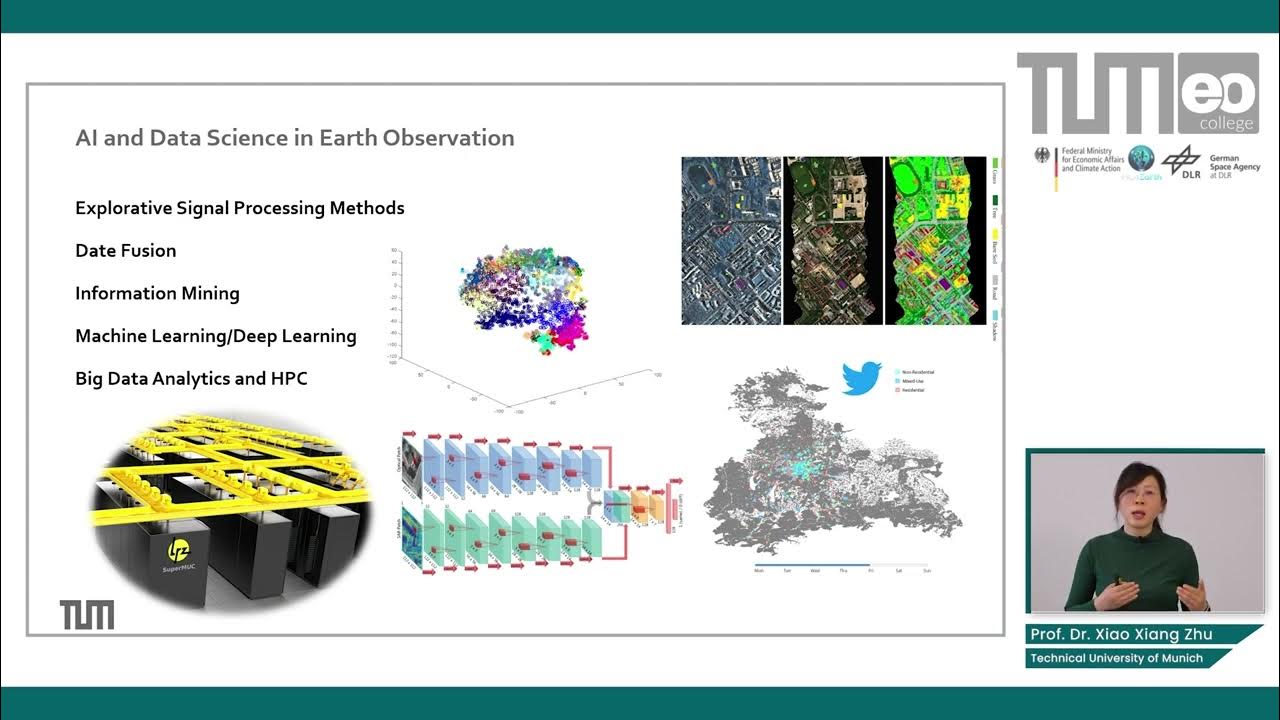AI Frontiers | C Suite Conversations "Core Principles of Data Ethics in governing Responsible AI"
Summary
TLDRThe transcript discusses the rapid advancement of artificial intelligence and the pressing need for data ethics in AI governance. It emphasizes the importance of aligning AI goals with human values, drawing on Stephen Hawking's warning about the risks of super-intelligent AI. The speaker advocates for a balanced approach, using AI as a tool to augment human capabilities responsibly, with critical thinking and ethical considerations at the forefront to ensure benefits for all.
Takeaways
- 🤖 The rapid advancement of AI has brought about a surge in discussions around AI ethics and governance.
- 📚 AI ethics is not a new concept, but it has gained more attention with the rise of powerful AI tools like GPT.
- 🧠 Stephen Hawking's quote emphasizes the risk of AI not in its malice but in its competence, which can lead to unintended consequences if goals are misaligned with human values.
- 🐜 The analogy of the ant and the hydroelectric project illustrates the potential for AI to cause harm if its objectives do not consider the well-being of all affected parties.
- 🔍 The current 'panic' around AI ethics stems from the recognition that AI is a tool that can greatly impact human activities, and thus requires ethical guidelines to ensure its responsible use.
- 💡 The speaker advocates for a 'glass half full' perspective on AI, viewing it as an enabler for human critical thinking rather than something to fear.
- 📘 The importance of establishing rules for AI engagement is highlighted, to determine when human critical thinking should be applied and when AI should be utilized.
- 🌐 The speaker's philosophy is to demystify AI and emphasize its potential as a tool to enhance human capabilities, particularly in the field of economics.
- 📚 The script reflects on the historical use of books for research, contrasting it with the modern use of AI as a research tool, showcasing the evolution of information access.
- 🤝 The ethical concerns around AI and data are centered around the need to ensure that AI's development and application benefit all of humanity, not just a select few.
- 🛡️ The script calls for a focus on ethical data practices, such as unbiased data handling, to ensure that AI systems are fair and equitable.
Q & A
What is the main concern regarding the rapid advancement of artificial intelligence?
-The main concern is not about AI having malice, but about its competence. If a super intelligent AI's goals are not aligned with human values, it could lead to unintended consequences.
What did Stephen Hawking believe was the real risk with AI?
-Stephen Hawking believed that the real risk with AI was not malice, but the fact that a super intelligent AI would be extremely good at accomplishing its goals, which might not align with human interests.
Why is there a current emphasis on AI ethics and governance?
-There is an emphasis on AI ethics and governance because as AI becomes more integrated into society, it's crucial to ensure that its development and use are aligned with human values and do not cause harm.
What is the core principle of data ethics mentioned in the script?
-The core principle of data ethics mentioned is ensuring that data is used responsibly and ethically, with a focus on avoiding bias and ensuring fairness for all stakeholders.
How can organizations implement data ethics more effectively?
-Organizations can implement data ethics more effectively by establishing clear guidelines and policies, training employees on ethical data practices, and regularly reviewing and auditing their data processes.
What is the speaker's view on AI as a tool for human enhancement?
-The speaker views AI as a tool to enable humans to be better at what they do, by leveraging critical thinking and putting rules in place to determine when to engage human thought and when to rely on AI.
Why is it important to consider the ethical implications of AI?
-It's important to consider the ethical implications of AI to ensure that its development and deployment do not harm individuals or society, and that it is used in a way that is fair and beneficial to all.
What is the analogy used by the speaker to illustrate the potential risk of AI?
-The speaker uses the analogy of an ant hill being flooded for a hydroelectric green energy project to illustrate how a super intelligent AI, without malice but with competence, could cause harm if its goals do not align with human interests.
What does the speaker suggest is the fundamental reason for the current focus on AI ethics?
-The fundamental reason for the current focus on AI ethics is the recognition that humans play a significant role in leveraging AI as a tool, and there is a need to establish rules to guide its responsible use.
How does the speaker describe the role of humans in the development and use of AI?
-The speaker describes the role of humans as crucial in leveraging AI as a tool to enhance human capabilities, with the need for critical thinking and ethical considerations to guide its application.
What is the speaker's philosophy regarding AI and its potential impact on society?
-The speaker's philosophy is that AI should not be seen as something scary but as a tool that can be used to improve human capabilities, provided that ethical guidelines are followed to ensure its responsible use.
Outlines

This section is available to paid users only. Please upgrade to access this part.
Upgrade NowMindmap

This section is available to paid users only. Please upgrade to access this part.
Upgrade NowKeywords

This section is available to paid users only. Please upgrade to access this part.
Upgrade NowHighlights

This section is available to paid users only. Please upgrade to access this part.
Upgrade NowTranscripts

This section is available to paid users only. Please upgrade to access this part.
Upgrade NowBrowse More Related Video

AI and Data Science in Earth Observation - Introduction

Noam Chomsky on Artificial Intelligence, ChatGPT.

[ Dakwah Islamiyah Magister Farmasi UII ] Indonesia Moslems and Big Data

What I've Learned Reading These 7 Books about AI

Artificial Intelligence Task Force (10-8-24)

Nick Bostrom What happens when our computers get smarter than we are?
5.0 / 5 (0 votes)